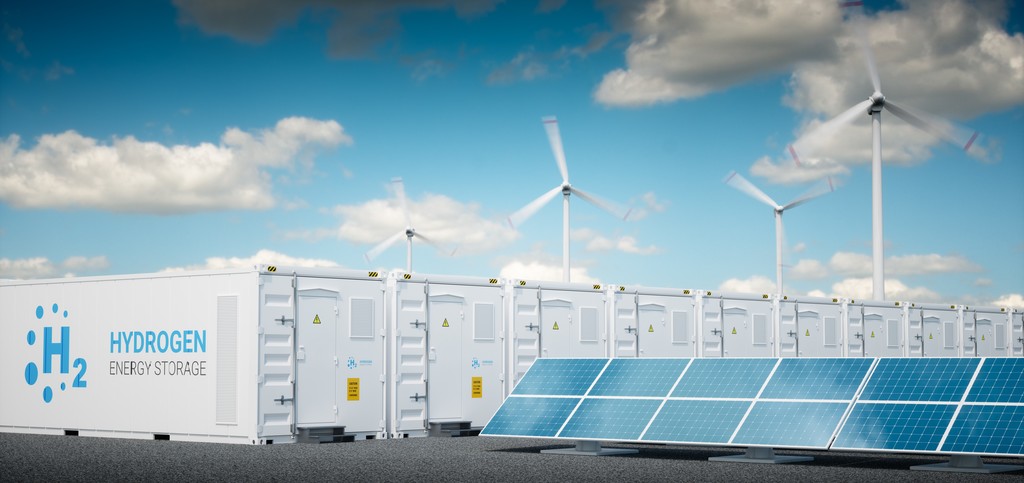
RUN and AMPS Stocks Potential Rapid Solar Sector Growth
Morgan Stanley's Top Solar Picks Eye Significant Gains in Q2 Earnings Amidst Dynamic Market Growth, RUN and AMPS Stocks |That's TradingNEWs
The solar energy sector is presently witnessing dynamic growth, triggered by two key players, Sunrun Inc. (NASDAQ: RUN) and Altus Power Inc. (NYSE: AMPS). In the face of an imminent second-quarter earnings season, the companies are experiencing a surge in their stock prices by 12.7% and 13.1% respectively. This follows Morgan Stanley's endorsement of both companies as top picks within the solar energy sector.
Andrew Percoco, a seasoned analyst from Morgan Stanley, has expressed confidence in Sunrun's potential to meet its Q2 installation target of 270-290 MW. Percoco's expectations are predicated on the company's Q1 performance, where it achieved a Net Subscriber Value (NSV) of $12,000. Considering this growth trajectory, Sunrun could potentially see an NSV of $12,921 in Q2. Furthermore, the company's Sunrun Shift product is anticipated to support market share gains in California. This promising outlook could potentially instigate a positive revision of the full-year guidance.
Simultaneously, Altus Power is on Percoco's radar for presenting more potential upside opportunities than downside risks in its 2023 guidance. With $79M in annualized EBITDA by the end of 2022, and an additional $17M-$19M projected for 2023 from the True Green acquisition, Altus Power appears set to reach the lower end of its guidance. This projection does not include additional assets expected to be put into service within the year.
The United States residential solar market is projected to grow by 15% in 2023, while a temporary decline of 10% is forecasted in 2024. The market is then expected to bounce back with a 10% increase in 2025, as the advantages of the Investment Tax Credit (IRA) and lower hardware costs become fully apparent. Percoco suggests that large installers like Sunrun, Sunnova, and SunPower will likely seize market share during this period, given their capital cost advantages, balance sheet strength, and supply chain superiority.
Sunrun, a leader in the rooftop solar and energy storage service market, has undergone substantial growth amidst the explosion of demand in recent years. The US residential market for solar panels is vastly untapped, with only about 4% market penetration to date. Sunrun, therefore, stands to exploit this massive market opportunity for substantial growth. However, a major impediment to solar panels' appeal lies in the introduction of Net Energy Metering (NEM) 3.0, which threatens to reduce compensation by 75%, thereby diminishing the incentive for solar panel adoption.
Meanwhile, Altus Power Inc has been enjoying a hype wave around renewables, with its share price reaching over $14 per share in September 2022. Despite currently trading at a high multiple of 61x forward earnings, projections for 2025 suggest an earnings per share (EPS) of $0.63, translating to a price-to-earnings (P/E) ratio of 8, making Altus Power an attractive prospect for investors. The company has maintained a strong expansion trajectory, with operations spanning 24 different states in the US.
Altus Power, dedicated to developing, constructing, and operating solar power projects across the US, has already established solid fixed revenue streams. Its portfolio has expanded to a total of 678MWs across 24 states. Altus Power's margins appear promising, particularly given the additional projects slated for completion by the end of FY2023. The company has made significant strides in Q1 2023, with 8MWs projects completed and an additional 67MWs projected to finish before the year's end.
Interestingly, Altus Power's business model is in-house, an approach that has significantly bolstered its EBITDA growth. The broader market trend for solar panels is on an upward trajectory as more households adopt the technology. There is a seasonal aspect to solar panels, with about 65% of total energy generated between March 21st and September 21st. This seasonality is likely to be reflected in Altus Power's quarterly reports.
In terms of Q1 2023 performance, Altus Power recorded an impressive adjusted EBITDA margin of 55%, far exceeding the sector's average of 33%. This strong performance has contributed to the company's current valuation. The management has attributed the margin expansion to its portfolio growth, a trend that was evident in Q1 2023. Looking ahead, Altus Power aims to increase its portfolio by an additional 13% this year, which could have a positive impact on the margins in 2024.
For 2023, Altus Power's adjusted EBITDA is estimated to be between $97 - $103 million, signaling a 70% increase YoY. If this growth trajectory continues, the company might not need to dilute its shares to fuel growth. With solid bottom-line margins, further dilution seems unnecessary. This could potentially lead to upward revision of the projected EPS, making the current 60x forward earnings an appealing buy.
As of July 17, 2023, Altus Power's stock closed at $6.50, with its all-timeWhile challenges persist, Sunrun's competitive position remains robust. With a primary footprint in California, the company has been exposed to changes in the region's net metering regulations, or NEM 3.0, which became effective on April 15, 2023. The revision to these regulations led to a substantial reduction of the excess energy compensation by 75%. This, in turn, could potentially hamper solar panel sales for Sunrun as it alters the lucrative dynamics that previously fueled residential solar adoption. However, Sunrun's overall outlook remains strong, with the company's Net Subscriber Value projected to rise in the second half of the year, surpassing the average of $12,000 from Q1 FY2023.
On the other hand, Altus Power has seen a substantial roller-coaster ride in terms of its share price, which peaked at over $14 per share back in September 2022. Despite its current multiple standing at a hefty 61x forward earnings, analysts predict a significant bounce back, making AMPS an attractive prospect. By 2025, earnings per share (EPS) are forecasted to reach $0.63, which translates to a price-to-earnings (P/E) ratio of 8. This valuation shift could greatly bolster the appeal of Altus Power.
Despite its considerable present valuation, Altus Power has not slowed its strategic expansion across the United States. With its footprint in 24 different states, the company projects an EBITDA of $97 - $103 million for 2023. This would mark an impressive YoY increase of 70%. Though the current price might not seem appealing for new investments, it represents a solid hold for existing shareholders, especially those eyeing possible additions during short- to medium-term price dips.
Altus Power's business model focuses primarily on the development, construction, and operation of solar power projects across the U.S. Already boasting a portfolio consisting of 678MWs spread over 24 different states, AMPS has not only diversified geographically but also strengthened its revenue streams. This is particularly noteworthy for a renewable energy company as such companies typically grapple with unimpressive margins during their early stages. However, AMPS, by bringing more projects online, has begun to realize healthier margins.
The year 2023 is expected to see significant growth in the company's portfolio, with an additional 67MWs of projects forecasted to be completed by year-end. This follows the successful completion of 8MWs of projects in Q1 2023. The completion of these projects could potentially push the net margin to around 15% by 2024, given an assumed dilution of shares to 170 million, marking a 12.5% increase from today's levels.
In the context of broader market trends, solar panels have seen an upward trajectory as more households adopt this technology. Despite a 13% YoY drop in the deployment of new solar projects in 2022, the overall outlook remains positive. Altus Power, with its comprehensive in-house business model covering the entire manufacturing line of solar energy generation and storage systems, stands to benefit significantly from this trend.
Solar energy does have a degree of seasonality, with about 65% of the total energy generated between March 21st and September 21st. This trend will likely be reflected in AMPS's quarterly reports, leading to variation in its fixed revenues from quarter to quarter.
The Q1 2023 financials of Altus Power revealed encouraging results with an Adjusted EBITDA margin of 55%, substantially higher than the sector average of 33%. The company's robust financial performance is testament to the potential for further margin expansion driven by portfolio growth, as experienced in Q1 2023.
Looking forward, the Adjusted EBITDA for 2023 is expected to be between $97 - $103 million, marking a 70% increase YoY. This growth is already factored into the share price. However, a possible catalyst could emerge from AMPS's strong bottom-line margins, which may eliminate the need for further share dilution. If the shares stay around the 160 million mark, the projected EPS might need to be revised upwards. This adjustment could turn the current 60x forward earnings into a highly attractive buy opportunity.
As of July 17, 2023, Altus Power's stock closed at $6.50, a significant drop from its all-time high closing price of $14.23 on September 28, 2022. However, the 52-week high stock price of $14.71 remains 126.3% above the current share price. The 52-week low stock price stands at $4.08, 37.2% below the current share price, and the average Altus Power stock price for the last 52 weeks is $7.41. As of July 14, 2023, Altus Power's market cap stands at $0.93B with a price-to-book ratio of 1.99.In the same vein, Sunrun's latest closing Sunrun's latest closing price as of July 17, 2023, stood at $44.72. This represents a substantial slide from its 52-week high of $59.40, which is 32.7% above the current share price. However, compared to the 52-week low of $28.71, which is 35.8% below the current share price, Sunrun has been holding its ground well. Over the past 52 weeks, the average Sunrun stock price has been $45.10. As of July 14, 2023, the company's market capitalization is approximately $8.9B, with a price-to-book ratio of 7.04.
Sunrun's first-quarter results for 2023 showed robust financial performance, with a 12% increase in revenue compared to the same period last year. The Adjusted EBITDA margin was 20%, indicating a strong underlying profitability of the business. However, this is below the sector average of 33%, which may reflect the company's ongoing expansion efforts. Nevertheless, the company's gross earning assets at the end of Q1 2023 were $4.1B, up 11% YoY. This provides a solid indication of the company's underlying asset quality and its ability to generate future revenues.
For FY2023, Sunrun forecasts an annual growth rate of approximately 10-15%, resulting in an estimated Adjusted EBITDA of $425 - $450 million. The company's 2023 outlook expects to add around 550MW to 575MW of solar energy capacity, marking a 10% YoY increase.
Sunrun's unique selling proposition is its end-to-end business model that controls every step of the customer's solar journey, from sale to installation, as well as maintenance. This control allows Sunrun to provide an unparalleled customer experience, resulting in a high Net Promoter Score of 50, which far surpasses the utility industry's average score of -9. This kind of customer satisfaction fuels word-of-mouth referrals, Sunrun's most significant source of business, thereby reducing marketing expenses and improving overall profitability.
Sunrun's customer-centric approach, coupled with an industry-leading 20-year performance guarantee on its solar systems, sets it apart from other solar companies. This has helped the company build a high degree of customer trust and loyalty, which will likely continue to fuel its future growth.
In terms of headwinds, Sunrun, like many companies in the solar sector, is dealing with a highly competitive landscape, tightening regulations, and potential supply chain disruptions. However, it is addressing these challenges with a forward-thinking approach. For instance, in response to the recent changes in net metering regulations in California (NEM 3.0), Sunrun is planning to deploy more home batteries and push for greater energy efficiency, reducing dependence on excess energy compensation.
Overall, the future seems bright for both Sunrun and Altus Power. The solar industry is poised for significant growth in the coming years, driven by the global shift towards renewable energy sources and the commitment to reducing greenhouse gas emissions. Companies that can navigate the challenges and seize the opportunities this transition presents will likely see substantial long-term growth.
















